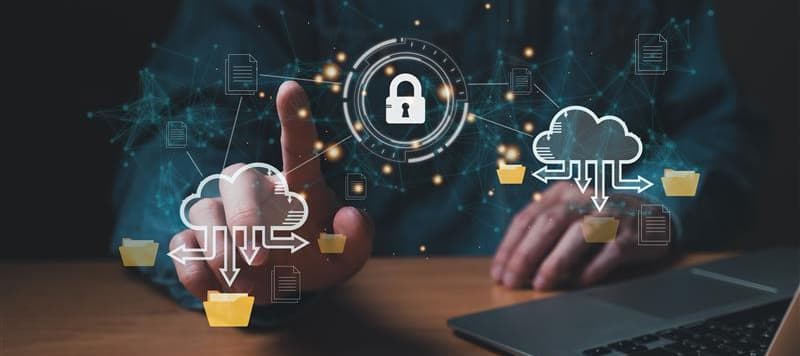May is mental health awareness month. Consider it your annual reminder that too much time on the internet or social media can lead to unhealthy consequences. But technology isn’t all bad when it comes to mental health. Like everything else in life, it’s about balance. While most of us couldn’t live without the internet and social media, there is a way to lessen the bad effects of technology through good habits – or what we call digital fitness.
Social distancing on social media
There couldn’t be a better time to be talking about technology and mental health. While the global coronavirus pandemic has most of us sheltering at home, we’re also relying more and more on technology for work and staying connected on social media. But too much social media can have its consequences, too.
The more scientists study social media use, the more they find negative side effects:
- Young people who use social media more than two hours a day tend to rate their mental health as fair or poor compared with less frequent users.
- Occasional users of social media are almost 3x less likely to be depressed than heavy users.
- People who restrict social media use to a half-hour a day have significantly lower depressive and anxiety symptoms.
If you’re someone who finds periods of abstention reinvigorating, you may want to add a digital detox to go along with New Year’s resolutions and Sober October.
Data loss blues
When you spend a lot of time on a computer, it’s only a matter of time before you lose something important. It could be financial documents, or an album of precious family photos, or maybe a big work presentation. Worse yet, you could have your entire system taken over by ransomware. Stressed yet? You’re not alone. We asked IT pros what they would rather lose than their data and here’s what they had to say:
Things IT pros would rather lose than data:
- Internet connection
- Cell service
- Internal organ
- Wedding ring
- Robot lawnmower
- Bacon
That’s right. Bacon! Kidding aside, losing data can be really stressful. Many businesses go out of business after losing data. That’s why backing it up is so important. Do it for the sake of your data, or do it for the bacon, but just do it! You’ll thank us.
Technology never sleeps
If you think it’s hard for those just using technology, think of the people who have to work in technology. If you’ve ever thought about a career in tech, you better like the night shift. Technology never sleeps. The best time to perform upgrades or installations is late at night when most users are offline and there’s less traffic on the network. Want to launch a new website? Midnight is probably the best time. But all this late-night system testing and debugging can lead to loss of sleep and, in turn, an unhealthy dose of stress.
And it’s not just tech pros doing tech things late at night. If you’re up late scrolling your feed and posting comments, you may not be sleeping as well as you should. The blue light from phone screens and computers reduce your levels of melatonin, which is the hormone that controls your sleep. And lack of sleep can lead to several harmful side-effects, including:
- Anxiety, insomnia, depression, forgetfulness
- Impaired thinking and slow reaction time
- Increased risk for heart disease, high blood pressure, stroke and diabetes
- Sleep apnea, low testosterone and decreased sex drive
- Skin lines, dark circles under the eyes, weight gain
So, avoid using tech too close to bedtime if you can. Reduced stimulation works wonders for good sleep habits. The news will still be there in the morning.
There’s an app for that
It’s not all doom and gloom when it comes to technology and mental health. In fact, advancements in health technology are emerging at a rapid rate. One area of progress is apps that help people with mental health issues. The National Institute of Mental Health has identified several promising trends, including:
- Apps that provide tools for managing stress, anxiety and sleep problems
- Cognitive remediation apps that help people develop thinking and coping skills
- Illness management apps that put trained health care providers in touch with patients
- Mindfulness, meditation and relaxation apps
Cyber-resilience and digital fitness
As the coronavirus continues to disrupt our everyday lives, it’s understandable when people turn to social media and the internet for stability or just to pass the time. But it’s important to avoid overdoing it. At the same time, for those of us that need to be online for work, ensuring you have the appropriate data protection in place can go a long way in reducing the fear of bad things happening – like data loss and ransomware. Just like being physically fit can help your mental state, being digitally fit gives you peace of mind. For the month of May, while we recognize mental health awareness month, we encourage you to find balance between your digital life and your real one.










